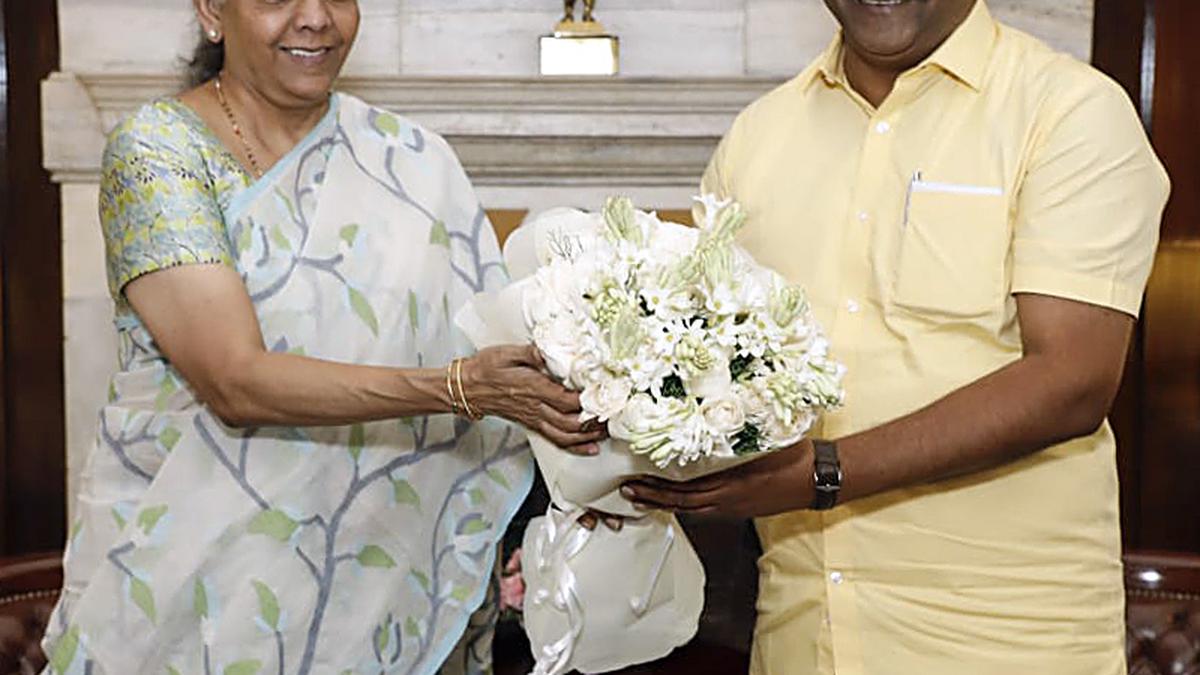
Kerala seeks nod for 1% ‘ad hoc borrowing’ in 2023-24
The Hindu
Kerala seeks 1% GSDP borrowing increase from Centre to offset resource loss. FM Balagopal asked for release of grants, arrears due to State. Loss of ₹8,400 cr Revenue Deficit Grant & ₹10-12K cr GST comp. FM seeks ₹265 cr Million-Plus Cities, ₹371 cr Health Grant, ₹521 cr IGNDPS, ₹750 cr 7th UGC Pay Revision & ₹1,925 cr Part I Scheme.
The State government has urged the Centre to allow it an ‘‘ad hoc borrowing increase’‘ of 1% of the GSDP above the ceiling set for the 2023-24 fiscal in view of the resource loss suffered by the State.
Finance Minister K. N. Balagopal conveyed the State’s requirement to Union Finance Minister Nirmala Sitharaman at a meeting in New Delhi on Wednesday. Mr. Balagopal has also asked the Centre to urgently release money due to the State under various grants, schemes and pending arrears.
After the meeting, Mr. Balagopal said Kerala was likely to face fiscal constraints of a more severe nature in 2023-24 compared to previous years. Nevertheless, the State government hopes to negotiate the fiscal situation without it disrupting salary and pension payments and development spending, he said.
In 2023-24, Kerala will be deprived of around ₹8,400 crore in Revenue Deficit Grant compared to 2022-23, and around ₹10,000 crore to ₹ 12,000 crore due to the cessation of GST compensation, he said. The State will also face a resource loss of around ₹8,000 crore due to the restrictions on open market borrowing limit.
Mr. Balagopal has also sought urgent steps from the Centre to release various payments that are due to the State. Out of the ₹265 crore ‘Million-Plus Cities’ for 2022-23, ₹51.55 crore is pending. In the case of the Health Grant for 2021-22, a total of ₹ 371.36 crore is pending.
Likewise, the State is yet to be reimbursed an amount of ₹ 521.95 crore towards the central share in the Indira Gandhi National Widow Pension Scheme, the Indira Gandhi National Disability Pension Scheme, and the Indira Gandhi National Old Age Pension Scheme.













